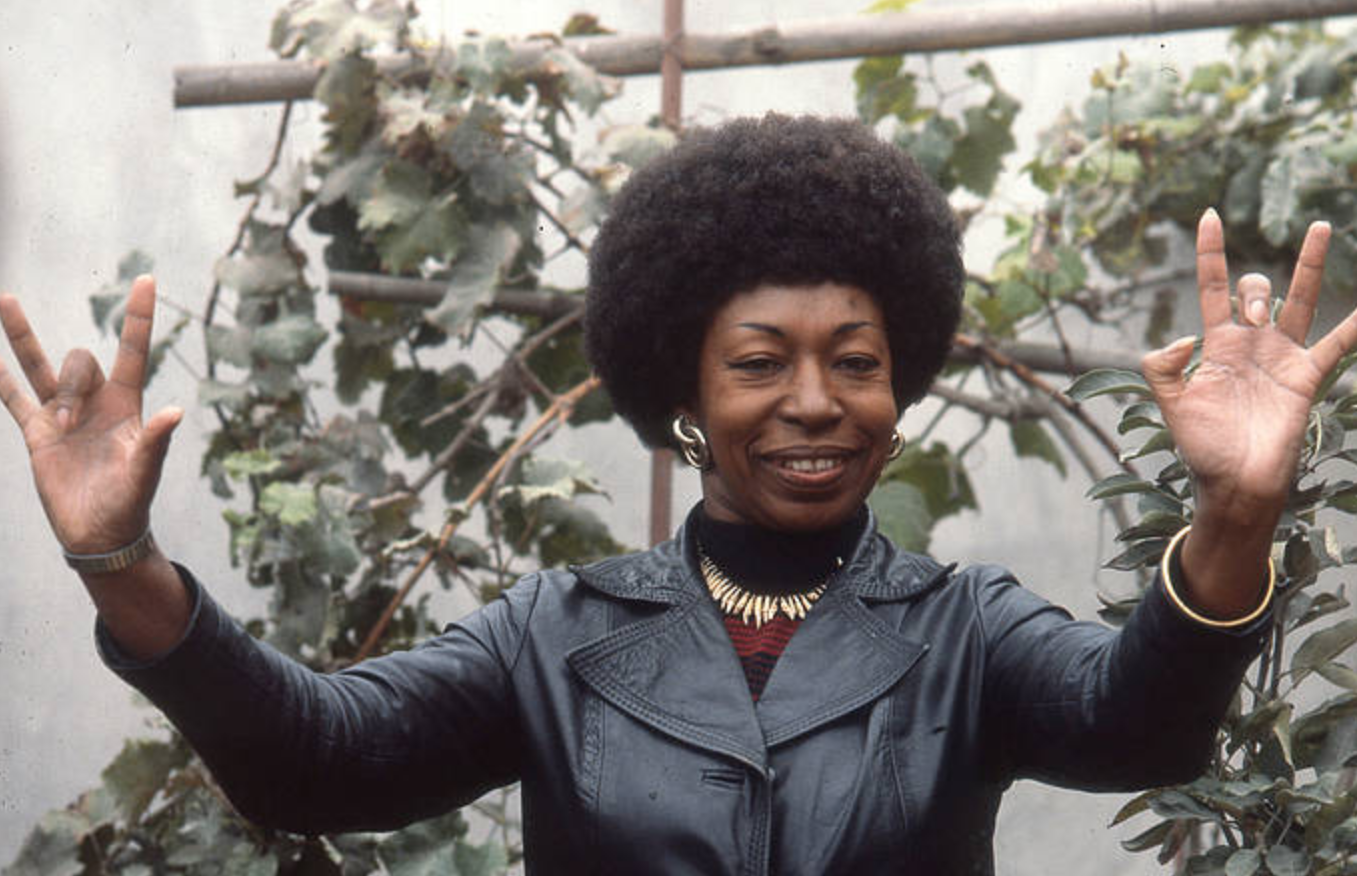The year 2022 marks 100 years from the birth of Victoria Santa Cruz (1922-2014), an icon of Afro-Peruvian culture and exponent of African influence in Latin America and the Caribbean. Woman, black, Latina, and bearer of strong African roots are elements that confer legitimacy to Victoria’s views in debates on racism, prejudice, and inequality – historical structural evils that are still present in the region.
The artistic, cultural, and historical legacy of Victoria Santa Cruz is synthesized in her poem “They Yelled At Me: Black!” (1960), a symbol of the struggle against racism and the exaltation of black identity. The text is divided into two parts, each with its own perception of the condition of being black at different stages of life.
The first part witnesses her childhood, marked by strong notes of prejudice, oppression, guilt, insult to his own self-esteem, and social rejection – aspects related to the inferior position of the black person in society. Thus begins the poem:
“Victoria Santa Cruz
I was just seven years old,
Just seven years old…
What seven years old!
Not even make it five!
Suddenly, some voices on the street
They yelled at me: Black!
Black! Black! Black! Black! Black! Black! Black!
And I hated my hair and my fleshy lips
And I saw with sadness my dark brown skin
I stepped back Black!
I stepped back…
The second part witnesses adulthood and maturity, marked by pride, awareness, self-affirmation, exaltation, and valorization of identity – aspects that suggest the idea of the rescue of self-esteem and de facto equality between blacks and whites.
Until one day when I stepped back,
I stepped back, and I was going to fall out
Black! Black! Black! Black!
Black! Black! Black! Black!
Black! Black! Black! Black!
Black! Black! Black!
So what?
So what? Black!
Yes, Black!
I’m Black!
Black, Black!
I’m black!
Henceforth, I don’t want to
straighten my hair
I don’t want!
And what a color! BLACK
And how good it sounds! BLACK
What a rhythm it has!
BLACK BLACK BLACK BLACK
BLACK BLACK BLACK BLACK
BLACK BLACK BLACK BLACK
BLACK BLACK BLACK
I’m black!
The poem could not be more topical. The report “Health of Afro-Descendant People in Latin America“, prepared by the Pan American Health Organization (PAHO), concludes that black Latin Americans live in a permanent situation of comparative disadvantage with respect to whites in the areas of maternal and child health, access to adequate housing and basic services such as water and sanitation.
In Ecuador, the maternal mortality rate for black women is three times higher than the overall maternal mortality rate. In Nicaragua, four out of five black people have limited access to safe drinking water, while 35% of whites live in this situation. Not to mention the incarceration rates in countries such as Brazil and Uruguay, where blacks constitute the predominant skin color of those imprisoned.
An estimated 220 million Latin Americans and Caribbeans are black (approximately one-third of the subcontinent’s total population). Compared to whites, blacks tend to be structurally more affected by poverty and marginalization. The first part of Victoria Santa Cruz’s poem has more resonance on this point.
One of the legacies of the slave system – which marked and continues to mark the socioeconomic structure of Latin America and the Caribbean – was to perpetuate skin color as a marker of differences between people. The entire history of slavery, caciquismo, and social hierarchization in the Americas, associated with the insufficiency of measures to correct the errors and injustices of the past, has perpetuated a kind of “naturalization of inequalities” in the present. As if this unequal and hierarchical social structure – with differences also marked by skin color – were something normal, as it has always been in the past. By naturalizing inequalities, we fail to perceive their existence.
As historian Lilia Schwarcz noted, “our present is really full of the past,” in reference to the various forms of racism, violence, and discrimination that still exist today. The reasoning also applies to indigenous peoples and quilombolas (fugitive slaves’ descendants), equally imprisoned in the myth of racial harmony (and democracy) supposedly existing in Latin American and Caribbean countries.
This permanence of the past in the present – of which racism is an example – often occurs in a silent, veiled, and dissimulated form (the prejudices that manifest themselves in the cracks of everyday life), but also in a public, ostentatious and violent manner. The successive episodes of racist and discriminatory manifestations reveal how backward and delayed we are in terms of human coexistence. They also reveal that we have not yet made peace with our past, whose oppressive structure is still alive in the present.
You cannot ignore the phenomenon of “prejudice against prejudice” (“reactive prejudice”, as suggested by Florestan Fernandes), which has to do with the denial of prejudice itself. That is when people refuse to acknowledge the existence of prejudice in society, under the thesis that racism and discrimination are issues of the past. Nothing could be more absurd. Some go as far as not recognizing “prejudice against prejudice”, creating vicious circles that take us away from the essence of the debate.
The legacy of Victoria Santa Cruz is extremely alive, so it is worth remembering. She is joined by other equally relevant names such as Tereza de Benguela (Brazil), María Remedios del Valle (Argentina), Sara Gómez (Cuba), Amy Ashwood Garvey (Jamaica), Sanité Bélair (Haiti) and Martina Carrillo (Ecuador), among countless black women who have made and are making history in Latin America and the Caribbean, demanding respect and acting based on principles of equity, equality, and justice (on the margins of everyday life and in the most public and free forms of expression).
The second part of the poem gains resonance at this moment.
*Translated from Portuguese by Janaína Ruviaro da Silva












